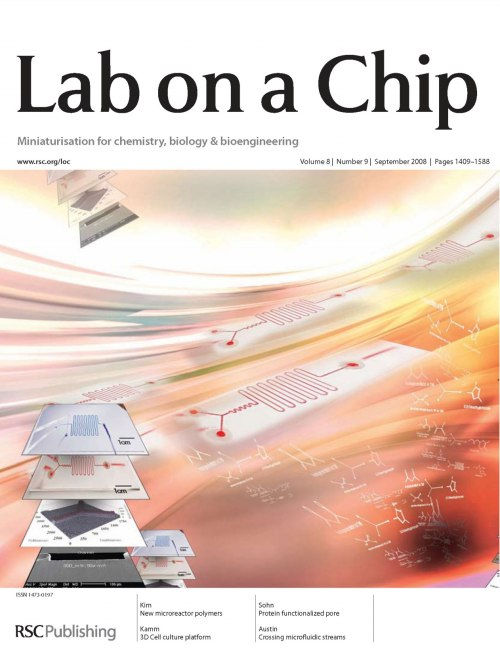Kyoung-Ik Min, Ph. D.
Postdoctoral Researcher
University of California, Berkeley
1113 Etcheverry Hall, Berkeley, CA 94720
Kyungpook National University
Welcome to MIN Lab.
우리 연구실은 펩타이드 자기조립(peptide self-assembly) 을 기반으로 차세대 진단·치료용 나노바이오 융합소재를 개발하는 데 주력하고 있습니다. 펩타이드는 아미노산 서열의 조합과 환경 조건에 따라 자발적으로 다양한 나노구조를 형성할 수 있으며, 이는 생체 내 단백질의 기능적 구조 형성과 유사한 원리를 가집니다. 이러한 특성을 활용하여, 우리는 단순한 구조 형성을 넘어 서열 기반 정보처리, 기능성 나노소재 설계, 의학적 응용으로 연구를 확장하고 있습니다.
우리 연구실은 펩타이드 자기조립을 “분자 레고(Molecular Lego)”로 바라보며, 다양한 아미노산 모듈을 조합하여 정보 저장·처리·출력 기능을 갖춘 차세대 바이오 소재 플랫폼을 구축하고자 합니다. 이를 통해 인류가 직면한 초고령 사회의 난치성 질환 극복과 첨단 바이오 헬스케어 혁신에 기여하는 것을 궁극적 목표로 하고 있습니다.
1. 진단 플랫폼 개발
펩타이드 자기조립을 이용하여 형광, 전기화학, 광학 신호 증폭이 가능한 나노소재를 제작하고, 이를 암, 퇴행성 질환, 감염성 질환 등의 조기진단 바이오센서로 응용합니다.
2. 치료용 나노소재 설계
펩타이드 기반 자기조립체는 체내에서 생분해 가능하고, 생체적합성이 뛰어나며, 화학적 변형을 통해 항암제, 단백질, 핵산 등의 치료제 전달체(drug delivery carrier)로 활용할 수 있습니다. 또한, 빛·pH·효소 반응 등 다양한 자극에 반응하는 스마트 나노의약품 개발을 목표로 합니다.
3. 융합 기능 구현
펩타이드 자기조립을 무기 나노입자, 금속, 효소 등과 결합하여 촉매·광열치료·재생의학용 하이브리드 소재로 확장하고 있습니다. 이를 통해 진단과 치료가 결합된 Theranostics(진단-치료 융합기술) 연구를 수행하고 있습니다.
본 연구실에 관심 있는 학생 및 연구원은 주저하지 마시고 언제든지 연락주시기 바랍니다.
본 연구실에 합류한 학생에게는 등록금 전액 및 생활비가 지원됩니다.
(모집전공: 화학, 고분자, 재료, 공업화학, 화학공학, 생화학 등 관련 전분야)
Contact e-mail: kimin8055@gmail.com, minwing8055@knu.ac.kr, kimin@knu.ac.kr
Tel: 053-950-4547
We welcome all Ph.D. and PostDoc applicants interested in the research.
Our laboratory focuses on the development of next-generation nano-bio hybrid materials for diagnosis and therapy, based on the unique principles of peptide self-assembly. Peptides, depending on their amino acid sequences and environmental conditions, can spontaneously organize into diverse nanostructures, mimicking the structural and functional complexity of natural proteins. Leveraging this property, we explore not only structural formation but also sequence-encoded information processing, functional material design, and medical applications.
We view peptide self-assembly as a form of “Molecular Lego”, where diverse amino acid modules can be programmed to build next-generation bio-platforms with information storage, processing, and output capabilities. Our ultimate vision is to contribute to overcoming intractable diseases in a super-aging society and driving innovation in advanced bio-healthcare technologies.
1. Diagnostic Platforms
We design peptide-based nanomaterials capable of amplifying fluorescence, electrochemical, or optical signals, applying them to early-diagnosis biosensors for cancer, degenerative diseases, and infectious diseases.
2. Therapeutic Nanomaterials
Peptide assemblies are biodegradable, biocompatible, and chemically versatile, making them ideal drug delivery carriers for anticancer agents, proteins, and nucleic acids. In addition, we develop stimuli-responsive smart nanomedicines that can be controlled by light, pH, or enzymatic activity.
3. Hybrid Functional Systems
By integrating peptide assemblies with inorganic nanoparticles, metals, or enzymes, we expand their potential into catalysis, photothermal therapy, and regenerative medicine. This enables advanced theranostics (combined diagnosis and therapy) platforms.
Feel free to contact Prof. Kyoungik Min
Contact e-mail: kimin8055@gmail.com, minwing8055@knu.ac.kr, kimin@knu.ac.kr
Cover Images









